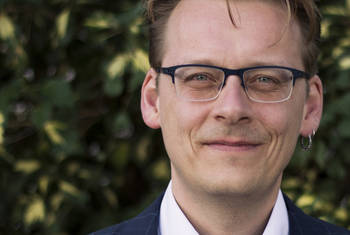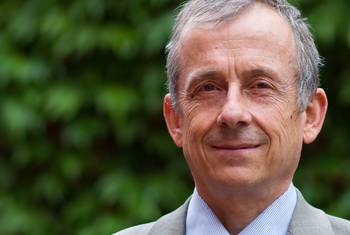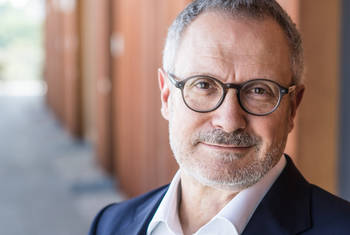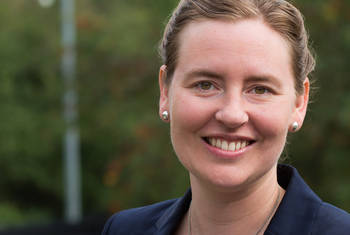Johannes Krause Are Europeans Today Genetically Different from Their Ancestors?
Johannes Krause is Director at the Max Planck Institute for Human History in Jena (Germany), where he also acted as a Founding Member, and heads the Department of Archaeogenetics. He is also Honorary Professor for Archaeo- and Palaeogenetics at one of Germany’s oldest and most renowned universities for sciences, the Eberhard Karls University in Tübingen. Krause’s research focuses on human evolution and ancient DNA. In this area, he has made major contributions to the knowledge about the spread of diseases and the evolution and continuation of certain genes. With this research, Krause has illuminated links between modern day humans and ancient related species, such as Neanderthals. He is currently an active member of the Center for Academic Research & Training in Anthropogeny and the German Archaeological Institute.
Area of Research
Archaeogenetics
since 2014
since 2015
Honorary Professor for Archaeo- and Paleogenetics
University of Tübingen (Eberhard Karls Universität Tübingen)
Institute for Archaeological Sciences
2013-2015
Professor for Archaeo- and Paleogenetics
University of Tübingen (Eberhard Karls Universität Tübingen)
Institute for Archaeological Sciences
2010-2013
Juniorprofessor for Palaeogenetics
University of Tübingen (Eberhard Karls Universität Tübingen)
Institute for Archaeological Sciences
2008-2010
Postdoctoral Fellow
Max Planck Society (more details)
Max Planck Institute for Evolutionary Anthropology
2008
PhD in Genetics
Leipzig University (Universität Leipzig)
Max Planck Institute for Evolutionary Anthropology
2005
Diploma in Biochemistry
Leipzig University (Universität Leipzig)
Fellowships
- Corresponding Member, CARTA (Center for Academic Research & Training in Anthropogeny) (since 2016)
- Corresponding Member, Deutsches Archaeologisches Institut (since 2016)
- WIN-Kolleg Fellow (Heidelberg Academy of Sciences and Humanities) (since 2013)
Prizes
- Boerhaave Nascholing, Excellent Speakers Award
- Tübinger Förderpreis der Gesellschaft für Urgeschichte und Quartärökologie for Doctoral Thesis (2010)
- AAAS Newcomb Cleveland Prize for the Most Outstanding Paper Published in Science (2010)
- ERC Starting Grant: "Ancient Pathogen Genomics of Re-Emerging Infectious Disease" (2013-2018)
- WIN-Kolleg Heidelberger Akademie Projekt: Neue Wege der Verflechtung von Natur- und Geisteswissenschaften (2013-2016)
- Landesstiftung Baden Wuerttemberg: „Genetische Untersuchung der frühgeschichtlichen Besiedlung des Ach- und Lonetals“ (2013-2016)
- DFG Research Grant. “The Settlement of Europe: Population Genetic History of Pleistocene Modern Humans in Europe.” (2012-2015)
- Carl-Zeiss-Foundation, Structural Innovation Program. Environmental Archaeology (Umweltarchaeologie) (2010-2014)
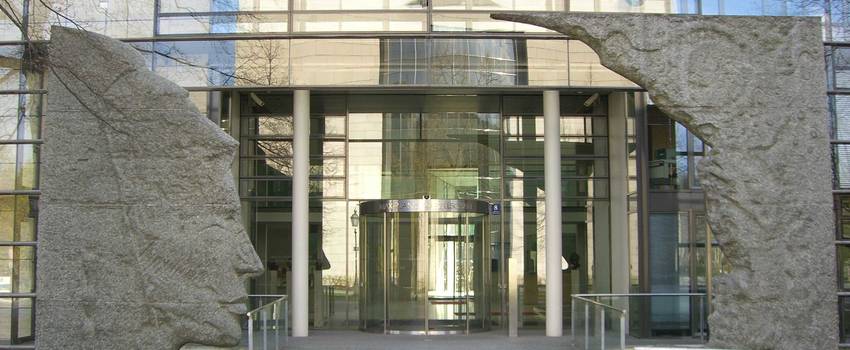 © Maximilian Dörrbecker
© Maximilian Dörrbecker
Max Planck Society
"The Max Planck Society is Germany's most successful research organization. Since its establishment in 1948, no fewer than 18 Nobel laureates have emerged from the ranks of its scientists, putting it on a par with the best and most prestigious research institutions worldwide. The more than 15,000 publications each year in internationally renowned scientific journals are proof of the outstanding research work conducted at Max Planck Institutes – and many of those articles are among the most-cited publications in the relevant field." (Source)
Institute
Max Planck Institute for the Science of Human History
The Max Planck Institute for the Science of Human History conducts basic research using modern analytical methods with the aim of a multidisciplinary and integrated science of human history. It seeks to bridge the gap between historical disciplines and the natural sciences. Scientists from a range of fields, such as biology, linguistics, archaeology, anthropology and history jointly work on innovative methods, in particular in the fields of cutting-edge genetic and proteomic sequencing, bioinformatics, archaeological science, computational modeling, language databases, and phylogeography. This thoroughly integrated, interdisciplinary approach will address long-standing questions about human history – including some previously deemed difficult, or even completely intractable – as well as novel questions inspired by the new horizons that cutting edge methods open up. (Source)
Map
Different ethnic groups have shaped the genetic makeup of today’s Europeans. Through migration from various regions of the world, the genetic material of humans who first arrived in Europe forty thousand years ago has seen drastic changes over the last ten thousand years. By analyzing D.N.A extracted from ancient bones, JOHANNES KRAUSE traces back the genetic ancestry of human beings, especially those living in Europe today. He explains in this video that, using recently developed D.N.A sequencing technologies, the research proves that genetic shifts happened about eight thousand as well as five thousand years ago. These findings correlate with the knowledge of archeologists that cultural changes, such as changes in subsistence strategies, occurred at the same time due to migration. The research presented shows that cultural changes and genetic changes sometimes went hand in hand.
LT Video Publication DOI: https://doi.org/10.21036/LTPUB10318
Ancient Human Genomes Suggest Three Ancestral Populations for Present-day Europeans
- Iosif Lazaridis, Nick Patterson, Alissa Mittnik, Gabriel Renaud, Swapan Mallick, Karola Kirsanow, Peter H Sudmant, Joshua G Schraiber, Sergi Castellano, Mark Lipson, Bonnie Berger, Christos Economou, Ruth Bollongino et al
- Nature
- Published in 2014





